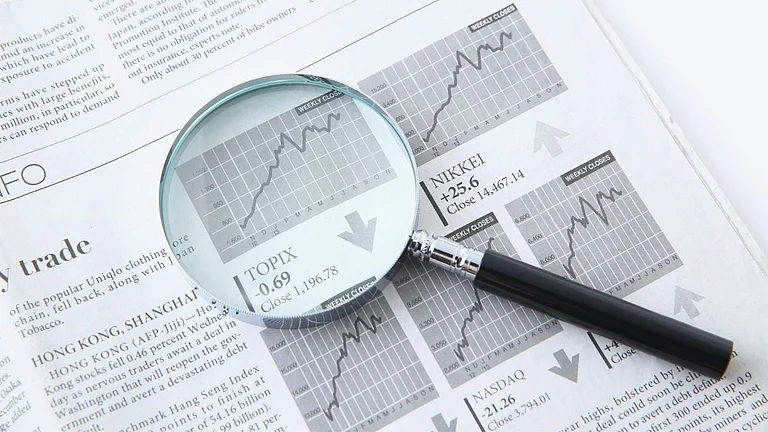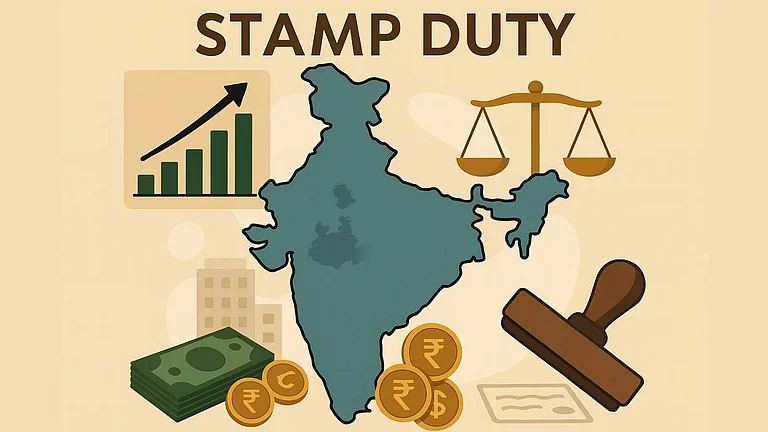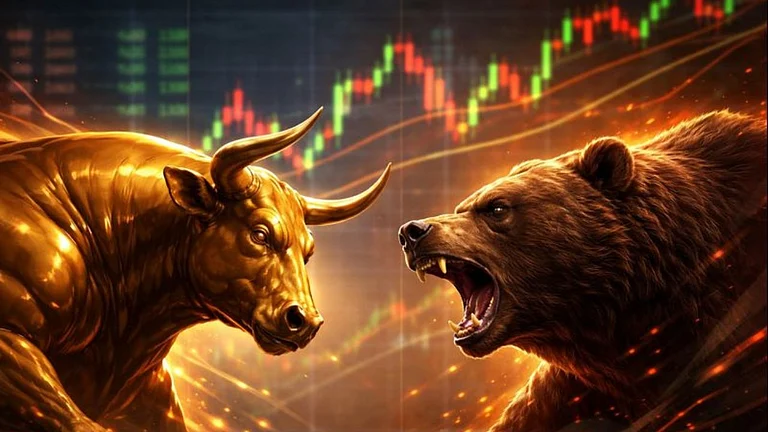The domestic equity market has been in pain for the past five months, as Foreign Institutional Investors (FIIs) continue their selling without relief. Since September 2024-end, when the market was at its peak, FIIs have sold nearly Rs 2 lakh crore worth of Indian equities till February 17, including both primary and secondary market transactions, as per CDSL data.
In February alone, FIIs sold equities worth Rs 26,295 crore, after selling Rs 72,675 crore in January this year.
Amid this unabated FII selling, benchmark Nifty 50 has corrected 12.7 per cent from its all-time high. On a year-to-date (YTD) basis, the index has come down by 3.36 per cent.
In contrast, China’s Hang Seng index has surged over 17 per cent YTD. Not just China, but Germany’s DAX has gained 13.8 per cent, France’s CAC 40 is up 10.8 per cent, and South Korea’s KOSPI has risen 9.5 per cent.
The US Dow Jones is also up by 5 per cent YTD.
Does that mean FIIs are shifting focus from Indian equities to Chinese and European markets? Is the ‘Sell India, Buy China’ trend making a comeback—this time with an added European twist?
According to Elara Capital’s report, India saw an outflow of $405 million the previous week. Against this, China saw an inflow of $573 million last week, the highest since October 2024. “Foreign fund flow into China is improving since the past 2-weeks,” said the report.
“Global fund managers actions are showing a gradual shift towards China from India,” the brokerage firm noted.
Apart from China, European markets are also witnessing increased inflows. “Inflows into Europe funds accelerate to the highest level since Jan’23 as Euro Stoxx 50 index has rallied back to the highs made in the year 2000. Global investors are gearing up to play the big break out there. Total inflows of $2.5bn led by Germany ($930mn), Switzerland ($824mn), France ($658mn) and Netherlands ($344mn),” the report said.
Why Are FIIs Selling India And Buying China, Europe?
VK Vijayakumar, Chief Investment Strategist at Geojit Financial Services, highlights that President Xi’s call for a ‘clean relationship’ between the government and private enterprises is being seen as a positive move to revive China’s struggling economy, which has been hit hard by the real estate crisis.
“If the Chinese government’s new initiatives attract positive responses from the FIIs, that means more bad news for Indian markets. More money will flow into Chinese stocks through the Hang Seng exchange since the PE of the Hang Seng index is only around 12 compared to the 18.5 one-year forward PE in India,” Vijayakumar says.
Tarun Singh, MD and Founder, Highbrow Securities, says, “On the surface, Hang Seng's outperformance can be attributed to a combination of factors, including a surge in mainland Chinese investors buying Hong Kong stocks, a rebound in the technology sector, and a decline in interest rates. The index's technical indicators, such as the golden cross formation and rising relative strength index (RSI), also suggest that the uptrend is likely to continue.”
“In contrast, the Indian equities market is experiencing a downturn, driven by a complex mix of domestic and international factors. The depreciation of the Indian rupee, global geopolitical tremors, and the RBI's conservative approach to inflation targeting have all contributed to a subdued market performance. The confluence of declining sectors, including automobile and banking, and broader economic challenges has painted a complex picture for India's economy,” Singh adds.
How Is The FII Flow Expected To Be?
Shrikant Chouhan, Head of Equity Research at Kotak Securities, says the market is facing several challenges, including US tariffs on India, uncertainty over domestic growth, and weak corporate outlooks from the Q3 FY25 earnings season.
On the economic side, he points out that the RBI has cut interest rates by 25 basis points, inflation cooled to 4.3 per cent in January from 5.2 per cent in December, and industrial growth slowed to 3.2 per cent in December from 5.2 per cent in November. With these factors in play, he expects FII flows to stay volatile.
How Sustainable Is The Recovery in China's Markets?
Tarun Singh, MD and Founder of Highbrow Securities, says that while the Hang Seng index has gained momentum, its fundamentals remain weak. Slowing economic growth, declining corporate earnings, and high valuations make it a risky bet for long-term investors.
In contrast, India’s economic slowdown is, to some extent, self-inflicted, says Singh. he believes that with a few strategic policy changes and a more business-friendly approach, the country can turn things around quickly. By fostering a supportive environment, India can unlock its immense potential, restore investor confidence, and drive sustainable growth. Given its large consumer market, favorable demographics, and strategic location, India remains a strong long-term investment destination—especially compared to the uncertainties surrounding the Hang Seng.














